Pediatric tuberous sclerosis complex (TSC)
Tuberous sclerosis (TSC) is a genetic condition that causes non-cancerous tumors to grow in the brain and other parts of the body. In the brain, these tumors can cause seizures and epilepsy.
We offer advanced therapies for the symptoms of TSC – including less-invasive brain surgery – so that your child can live a full life. Children's Health℠ is home to a Level 4 Epilepsy Center, the highest accreditation available. This designation means that we offer the highest level of care for children with epilepsy. We are also designated as a Tuberous Sclerosis Clinic by the Tuberous Sclerosis Alliance.
What does pediatric tuberous sclerosis complex (TSC) mean?
Tuberous sclerosis complex (TSC) is an inherited condition that causes benign (non-cancerous) tumors, also called lesions. In the brain, these growths can cause seizures. In other organs, they can cause kidney disease and other conditions. Medication and surgery can ease these symptoms.
Tuberous sclerosis is part of a family of conditions called malformations of cortical development (MCD). These disorders cause a person’s brain to develop atypically, with certain cells in places where they don’t normally appear.
Our interdisciplinary medical team, which includes genetic counselors, has the experience to provide a full range of testing for a clear diagnosis. We are one of the few programs in our region to perform the most advanced procedures and therapies to treat epilepsy.
What are the signs and symptoms of pediatric tuberous sclerosis complex (TSC)?
Non-cancerous tumors or other lesions that grow most commonly in the brain, eyes, kidneys, heart, lungs and skin
Behavior problems, such as hyperactivity, rage outburst or aggression
Developmental delays, including intellectual disability, learning disabilities or autism spectrum disorder
Eye problems, such as lesions on the retina (tissue at the back of the eye)
Heart tumors that may form before birth and usually shrink as a child gets older
Kidney problems, such as lesions that eventually affect kidney function
Lung problems, such as lesions that can cause shortness of breath or coughing
Skin abnormalities, such as facial lesions that resemble acne, patches of light-colored skin, areas of thickened skin, or growths under or around the nails
The signs and symptoms of TSC vary widely, based on where the tumors are and how severe the condition is. But most children with TSC have seizures within the first year of life.
It’s important to get an early diagnosis, because children are more likely to have developmental problems if they have seizures early in life that go untreated. Most often, doctors diagnose TSC when they notice heart abnormalities early in a child’s life.
Seizures and pediatric tuberous sclerosis complex (TSC)
Most people with TSC experience seizures. These seizures vary widely between individuals and sometimes change over a person’s lifetime. Your child might experience:
Infantile spasms -Many infants will be diagnosed with TSC after experiencing infantile spasms (most commonly between the ages of 4-8 months). Your baby may suddenly stretch out or flex their arms and legs for a few seconds, sometimes repeating the movement over several minutes. These spasms are most likely to happen when the baby first wakes up or is going to sleep.
Atonic seizures - A child’s muscles seem to suddenly go limp, resulting in a fall.
Focal (or partial) seizures -These seizures start in one area of the brain. Your child may look in one direction or turn their head in one direction and then seem to freeze or be less responsive. Some children have stiffness or posturing of part of their body or rhythmic jerking of an arm, leg, hand or foot.
Myoclonic seizures - Your child’s legs or arms may briefly jerk. The child may drop objects, stumble or fall.
Tonic seizures - Your child’s arms or legs may suddenly stiffen, sometimes causing them to fall.
How is pediatric tuberous sclerosis complex (TSC) diagnosed?
In most cases, doctors diagnose tuberous sclerosis shortly after birth or during childhood. In mild cases, however, the condition can go undiagnosed until adulthood.
Depending on which symptoms appear first, your child may see several specialists with training to diagnose and treat problems of the:
Brain (neurologist)
Heart (cardiologist)
Eyes (ophthalmologist)
Skin (dermatologist)
Kidneys (nephrologist)
Tests for pediatric tuberous sclerosis complex (TSC)
To find the cause of seizures and other symptoms, your child’s doctors will likely order tests such as:
We use blood work to check for signs of problems in kidneys or other organs
Assess your child’s genetics - checking for a gene change that causes TSC
Echocardiogram (echo) - This test shows the size and extent of lesions on the heart and helps us assess heart function.
Electroencephalogram (EEG) - This test can determine if seizures are occurring and where in the brain seizures are coming from. We perform an EEG by placing electrodes on your child’s scalp and recording the brain’s electrical activity.
MRI - This scan creates images of your child’s brain or organs using magnetic energy (not radiation).
Skin examination - Doctors will carefully examine your child’s skin, fingernails and toenails to look for signs of TSC.
Ultrasound - Doctors use sound waves to create images of the heart, kidneys and liver to look for tumors.
What causes pediatric tuberous sclerosis complex (TSC)?
Tuberous sclerosis is a rare genetic condition that develops before a child is born. About one-third of children with TSC inherit the condition from a parent. In the rest, TSC happens when genes undergo a mutation (genetic change) as the baby develops in the womb.
Researchers have identified two genes that can cause TSC – TSC1 and TSC2. These genes affect how cells grow in the body. When one of these genes is affected, cells can grow out of control, causing tumors.
How is pediatric tuberous sclerosis complex (TSC) treated?
Tuberous sclerosis is a lifelong condition that requires careful monitoring and follow-up care. Although TSC has no cure, we can treat many of the symptoms to help many children lead full, productive lives.
If your child has seizures, it’s important to begin the right treatment as quickly as possible. Seizures can put your child at risk of injury and affect their school performance and social activities.
Ongoing care
With appropriate, ongoing treatment, many people with TSC have a typical life expectancy. Your child’s care team will refer them to appropriate therapies to help them achieve their best possible health.
Your child may need:
Neurodevelopmental and behavioral screening
Regular testing to monitor tumors
Routine dental, eye and skin exams
Support such as occupational therapy (OT), mental health counseling and school services
Therapies such as laser treatment and dermabrasion for skin lesions
Medications
Medicine can relieve various symptoms of tuberous sclerosis. Certain drugs can treat mood and behavior problems. Your child’s medical team may also recommend medication to treat:
Brain and kidney tumors - Drug treatment can shrink these tumors in people with TSC.
Seizures - Antiseizure medication can control seizures. However, more than 50% of patients with TSC who have epilepsy do not respond to standard antiseizure medications. If this is the case for your child, our team of experts works together to find an effective treatment plan, including evaluating if neurosurgery may help curb seizures.
Surgery
If seizures happen so often that they affect your child’s quality of life, surgery may be necessary. Surgeons may remove the section of the brain where seizures begin.
At Children’s Health, we offer less-invasive brain surgery that doesn’t require a large incision and helps children recover faster. If appropriate, we perform laser interstitial thermal therapy (LITT), which involves only a small opening in the skull and a laser probe to remove the tumor.
In some children, seizures begin in multiple areas of the brain. For these, our team may implant a small device that regulates the brain’s electrical activity to prevent or stop seizures.
Your child’s doctor may recommend:
Responsive neurostimulation (RNS)
Pediatric tuberous sclerosis complex (TSC) doctors and providers
At our Level 4 Pediatric Epilepsy Center, your child receives care from a multidisciplinary team of doctors. You may see doctors who specialize in the heart, skin, kidneys and eyes, in addition to our epilepsy specialists.
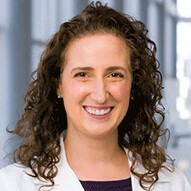 Dallas Armstrong, MDPediatric Neurologist
Dallas Armstrong, MDPediatric Neurologist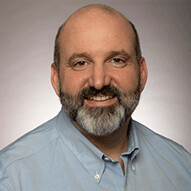 Stephen Elliott, MDPediatric Psychiatrist
Stephen Elliott, MDPediatric Psychiatrist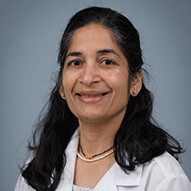 Charuta Joshi, MDPediatric Neurologist
Charuta Joshi, MDPediatric Neurologist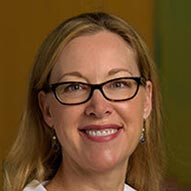 Angela Price, MDPediatric Neurosurgeon
Angela Price, MDPediatric Neurosurgeon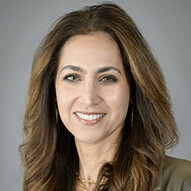 Rana Said, MDPediatric Neurologist
Rana Said, MDPediatric Neurologist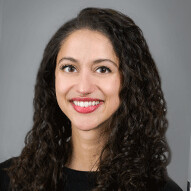 Lauren Sanchez, MDPediatric Neurologist
Lauren Sanchez, MDPediatric Neurologist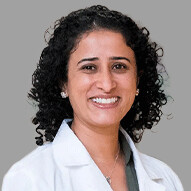 Deepa Sirsi, MDPediatric Neurologist
Deepa Sirsi, MDPediatric Neurologist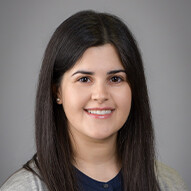 Afsaneh Talai, MDPediatric Neurologist
Afsaneh Talai, MDPediatric Neurologist